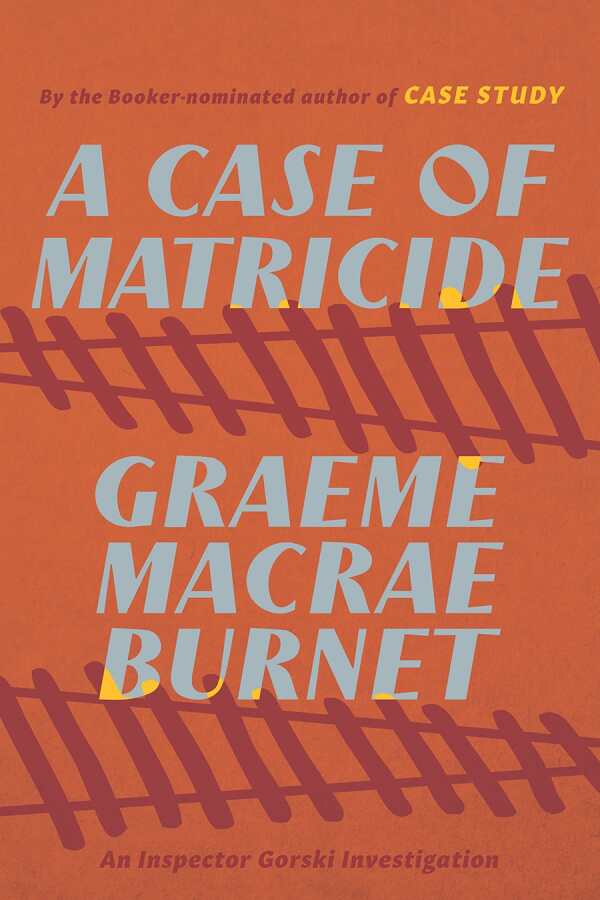A Case of Matricide
In Graeme Macrae Burnet’s kaleidoscopic novel A Case of Matricide, an inspector’s investigation into doppelgänger circumstances forces a confrontation with morality.
Masquerading as a translation of a French novel whose author, Raymond Brunet, killed himself after publishing it, this twisting tale follows Gorski, the chief of police of Saint-Louis, France. Gorski lives with his mother after his divorce, and her worsening dementia leaves him stonewalled. His observations lead him to judgments, fear that others watch him, awkwardness, and overanalyzing. And his opinions about himself fluctuate between smugness and self-hatred: without irony, he makes excuses for weaknesses that he doesn’t allow in others. Balancing his distasteful personality, Gorski’s wisdom is used to foreshadow coming developments: “All but the most habitual criminals crumble when faced with a lull in conversation.”
Gorski is called upon to investigate a not-quite-crime: an elderly woman claims her caretaker son threatened to kill her. The woman’s son, Robert Duymann (an anagram of “Raymond Brunet”), is a novelist whose own singular book disparages Saint-Louis. Like Gorski and Duymann, Duymann’s hero “lived with his mother and spent his days drifting between the town’s bars, eavesdropping on the inconsequential conversations of the townsfolk.” None of the three men intended for their lives to turn out this way.
Addicted to following procedure and worrying about how he is perceived, Gorski scrutinizes the threat—and confronts his feelings about his own mother. In this plot filled with mirrors, Gorski wonders who he’d be if he’d acted differently, even though his ultimate decision is influenced by bureaucratic and personal corruption.
A Case of Matricide is a probing metaphysical novel that asks whether an act that is both selfish and merciful is wrong or right and whether, therefore, its consequences are a punishment or a reward.
Reviewed by
Aimee Jodoin
Disclosure: This article is not an endorsement, but a review. The publisher of this book provided free copies of the book to have their book reviewed by a professional reviewer. No fee was paid by the publisher for this review. Foreword Reviews only recommends books that we love. Foreword Magazine, Inc. is disclosing this in accordance with the Federal Trade Commission’s 16 CFR, Part 255.

